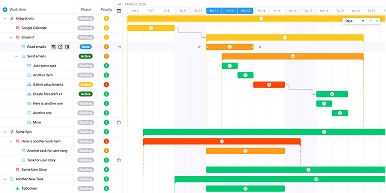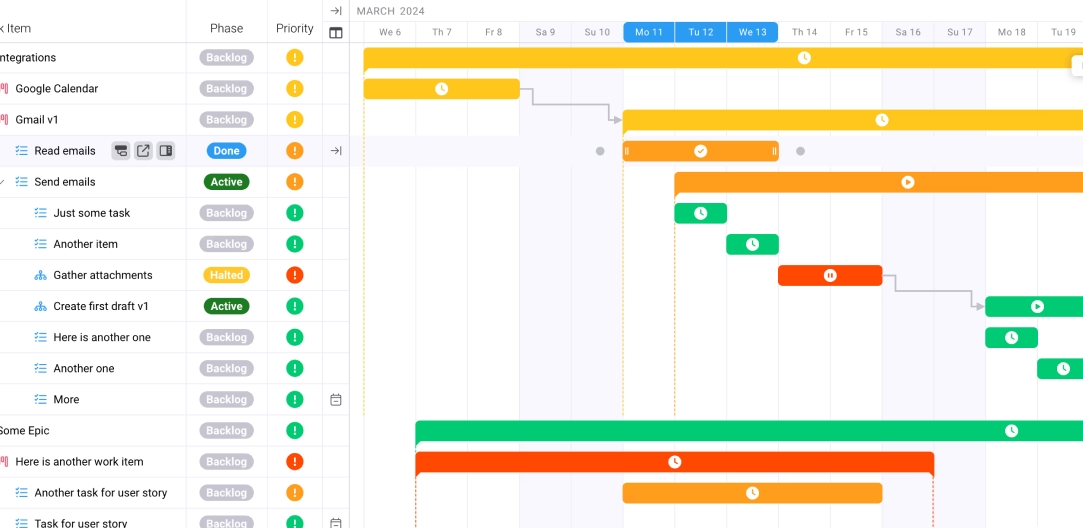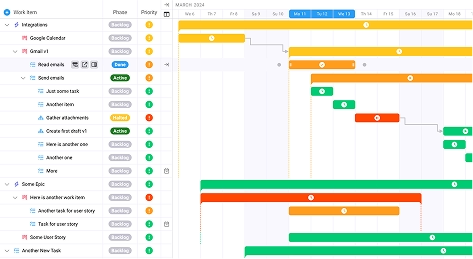
Emerging Marketing Technologies Every Agency Leader Needs to Watch in 2026
Key takeaways:
In the fast-evolving world of digital marketing, staying ahead means keeping a close eye on emerging marketing technologies. As 2026 unfolds, agency leaders must not only understand these innovations but also integrate them into their strategies to maintain a competitive edge. The phrase “emerging marketing technologies” is more than just a buzzword—it represents the cutting-edge tools and approaches that are reshaping how agencies connect with audiences, optimize campaigns, and deliver measurable results.
The marketing technology landscape is more crowded than ever, with thousands of solutions vying for attention. Yet, only a select few are truly transformative. This article dives deep into the most impactful emerging marketing technologies for 2026, offering actionable insights and practical guidance for agency leaders who want to lead rather than follow.
AI-Driven Hyper-Personalization
Artificial intelligence (AI) is no longer a futuristic concept—it’s the driving force behind the most effective marketing campaigns today. AI-driven hyper-personalization leverages advanced data analytics and machine learning to create highly individualized customer experiences. By analyzing real-time data from multiple touchpoints, AI enables marketers to predict customer intent, recommend relevant products or services, and deliver dynamic content that resonates on a personal level.
Sophie Musumeci, CEO and founder at Real Entrepreneur Women, emphasizes that “in 2026, AI-driven hyper-personalization will be non-negotiable for brands that want to stand out. Customers expect tailored experiences, not generic marketing.” This shift means agencies must invest in AI-powered tools that can analyze vast datasets, identify patterns, and automate personalized messaging at scale.
Unified Martech Stacks
The proliferation of marketing tools has led to a fragmented ecosystem where data silos and inefficiencies are common. Unified martech stacks address this challenge by centralizing data and integrating workflows across platforms. This approach fosters collaboration, improves efficiency, and ensures a consistent customer experience across all channels.
For agency leaders, the benefits of unified martech stacks are clear: smoother operations, better data visibility, and the ability to deliver cohesive campaigns that align with business objectives. By breaking down silos, agencies can respond more quickly to market changes and client needs, positioning themselves as agile partners in a dynamic industry.
Predictive Analytics and Outcome-Driven AI
Predictive analytics is transforming how agencies approach campaign planning and execution. By leveraging AI and machine learning, marketers can uncover patterns in customer behavior, forecast outcomes, and optimize strategies in real time. This outcome-driven AI not only boosts engagement but also enhances ROI by minimizing wasted efforts on ineffective tactics.
Alissa Santoro, VP of marketing at EXTE, notes that predictive technologies that leverage advanced data analytics empower brands to forecast and optimize campaign success across all channels. As predictive AI becomes more sophisticated, agencies can expect ready-to-use solutions that simplify implementation and deliver actionable insights.
First-Party Data Strategies
With the phase-out of third-party cookies, first-party data strategies have become the foundation for privacy-compliant and trust-building marketing. Agencies must now prioritize collecting, managing, and leveraging first-party data to deliver relevant, personalized experiences while respecting customer privacy.
First-party data strategies not only help agencies comply with evolving regulations but also enable them to build deeper relationships with their audiences. By owning their data, agencies can create more accurate customer profiles, improve targeting, and drive better results for their clients.
The Return to Owned Platforms: Websites and Domain Strategies
As social media platforms implement tighter controls and shifting algorithms, brands are refocusing on their owned digital properties. Websites and branded domains are once again taking center stage as the hub for all marketing efforts. Owning your digital narrative ensures visibility, consistency, and direct engagement with your audience.
Rachel Sterling, former global director at Instagram and Twitter (now X) and now CMO at Identity Digital, highlights this shift: “As social media platforms evolve with stricter content moderation and shifting algorithms, brands, businesses and the growing creator economy will find it increasingly difficult to reach their ideal audiences. The result? A greater emphasis on owning and controlling your own narrative.” Descriptive domains, such as those ending in “.ai” or “.world,” are emerging as powerful branding tools that enhance discoverability and align with a brand’s mission.
Privacy-Focused Solutions
Privacy concerns are at an all-time high, and consumers are demanding greater transparency and control over their data. Privacy-focused marketing technologies are becoming essential for agencies that want to build trust and maintain compliance with global regulations.
These solutions include consent management platforms, data encryption tools, and anonymization techniques that protect customer information while enabling personalized marketing. Agencies that prioritize privacy will not only avoid regulatory pitfalls but also strengthen their reputation as ethical partners.
Social Commerce and In-App Shopping
The line between social media and e-commerce is blurring, with platforms like Instagram, Facebook, and TikTok integrating in-app shopping features. Social commerce enables brands to create seamless browsing-to-purchase experiences directly within social feeds, opening new opportunities for engagement and revenue.
Agency leaders must adapt by developing strategies that leverage these features, such as shoppable posts, influencer collaborations, and targeted social ads. By embracing social commerce, agencies can help clients reach younger, digitally native audiences and drive conversions in real time.
Voice Search and Conversational AI
Voice search is gaining traction as consumers increasingly use smart speakers and virtual assistants to find information and make purchases. Conversational AI, powered by natural language processing, enables brands to deliver personalized, interactive experiences through chatbots and voice assistants.
Agencies should optimize content for voice search by focusing on natural language, long-tail keywords, and FAQ-style formats. Integrating conversational AI into customer service and marketing workflows can enhance engagement, improve satisfaction, and drive conversions.
Augmented Reality (AR) and Video Marketing
Augmented reality (AR) and video marketing are redefining how brands connect with audiences. AR enables immersive experiences, such as virtual try-ons and interactive product demonstrations, while video content continues to dominate social feeds and search results.
Agency leaders should explore AR-powered campaigns and invest in high-quality video production to capture attention and drive engagement. These technologies are particularly effective for product launches, brand storytelling, and experiential marketing.
Blockchain for Transparency and Trust
Blockchain technology is emerging as a tool for enhancing transparency and trust in digital marketing. By providing a secure, immutable record of transactions and data exchanges, blockchain can help agencies combat ad fraud, verify influencer partnerships, and ensure the integrity of customer data.
While still in its early stages, blockchain holds promise for agencies that want to differentiate themselves by offering verifiable, trustworthy marketing solutions.
The Role of Project Management in Marketing Technology Adoption
Integrating emerging marketing technologies requires robust project management to ensure smooth implementation and ongoing optimization. Effective project management enables agencies to coordinate cross-functional teams, manage timelines, and allocate resources efficiently.
Marketing projects are inherently complex, involving market research, creative design, content creation, and data analysis. A structured project management framework, such as Agile or Scrum, helps agencies adapt to changing requirements, track progress, and deliver results on time and within budget. For agencies looking to streamline their operations, advanced project management platforms that integrate with CRM, billing, and client portal solutions are becoming essential.
SEO-Optimized Content and Authority Building
As agencies adopt new technologies, they must also focus on building authority through SEO-optimized content. Good SEO content not only improves visibility and organic traffic but also establishes trust and credibility with audiences.
To create effective SEO content, agencies should write for their readers first, understanding their intent and delivering valuable, easy-to-consume information. Keyword research, clear headings, and optimized page elements are critical for ranking higher in search results and driving conversions.
Developing a Winning Content Strategy
A successful SEO content strategy starts with setting clear business goals, identifying target audiences, and performing thorough keyword research. Agencies should develop a content calendar, optimize all page elements, and regularly update content to maintain relevance and authority.
By focusing on relevance, expertise, and authority, agencies can produce top-notch content that attracts and retains clients. Optimizing internal links, images, and navigation further enhances user experience and search performance.
Measuring Success: KPIs and Analytics
To maximize the impact of emerging marketing technologies, agencies must track key performance indicators (KPIs) and analyze campaign results. Metrics such as traffic, conversion rates, and customer retention provide valuable insights into what’s working and where improvements are needed.
Advanced analytics platforms enable agencies to monitor performance in real time, adjust strategies, and demonstrate value to clients. By aligning KPIs with business objectives, agencies can ensure their technology investments deliver measurable results.
The Future of Agency Leadership
As 2026 progresses, agency leaders must embrace a mindset of continuous learning and adaptation. The pace of technological change shows no signs of slowing, and those who stay ahead will be best positioned to lead their teams and serve their clients.
By integrating AI-driven hyper-personalization, unified martech stacks, predictive analytics, first-party data strategies, privacy-focused solutions, social commerce, voice search, AR, video marketing, and blockchain, agencies can create meaningful, personalized experiences that drive growth and build lasting relationships.
Conclusion
The landscape of emerging marketing technologies is evolving at an unprecedented pace, and agency leaders who stay informed and agile will thrive in 2026 and beyond. From AI-driven hyper-personalization to privacy-focused solutions, the tools and strategies outlined in this article represent the future of marketing. By leveraging these innovations and maintaining a focus on project management, SEO, and data-driven decision-making, agencies can establish themselves as thought leaders and the premier solution in the project and work management space.
As we look ahead, the phrase “emerging marketing technologies” will continue to define the most successful agencies—those that embrace change, deliver exceptional value, and lead the industry forward.









